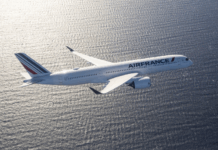Business travel often gets a bad rap. But what if much of what we think we “know” i is actually a myth? Challenging these misconceptions can not only save money but also make your trips more productive and even enjoyable. Bonnie Smith, GM of Corporate Traveller, believes that rethinking our perceptions is key.
“By questioning stubborn myths, we can turn business travel from a stressful obligation into a strategic advantage,” says Smith. She advises you to put your rethinking cap on for these:
Myth: Ridesharing is always cheaper than car rentals
While Uber and Bolt have their place, renting a car can often be the smarter financial move. Travel management companies (TMCs) frequently score great deals with car rental firms, offering rates that ridesharing can’t match.
Plus, those rideshare costs can skyrocket fast when you’re in an area prone to surge pricing. A rental car’s flat rate starts looking good in comparison. So, before you default to ridesharing for your next business trip, take a moment to crunch the numbers. You might find that good old-fashioned car rental is the way to go, especially for longer stays or when you need to zip around town frequently.
Myth: Business travel is bad for employee health
A recent Maxis white paper uncovers some exciting perks of moderate work travel. Employees hitting the road for 1 to 6 nights a month often enjoy better health, lower anxiety, and improved sleep compared to their desk-bound colleagues. It turns out that a bit of travel can inspire more activity and reduce the odds of smoking or obesity.
Business trips are golden opportunities to sneak in exercise, savour nutritious meals, and recharge—luxuries often overlooked in the daily grind. Plus, face-to-face interactions can spark morale and strengthen teamwork.
As Smith points out, many companies are catching on by revamping their travel policies to support employee wellbeing. This includes enticing options like hotels with gyms, healthier meal allowances, and time to relax on longer trips. With fresh surroundings and valuable networking, occasional business travel might just be the secret ingredient to boosting employee health.
Myth: Business travel is always bad for the environment
While business travel can contribute to carbon emissions, many companies are taking steps to minimise their impact. For example, airlines are investing in Sustainable Aviation Fuel (SAF), which significantly reduces greenhouse gas emissions and makes flights greener.
Businesses are also rethinking how they approach travel. They’re cutting unnecessary trips and opting for virtual meetings to reduce travel frequency. When travel is essential, they focus on direct flights and use public transport, which are greener choices. Plus, many companies are choosing eco-friendly hotels that prioritise sustainability.
TMCs are also upping the ante offering clients carbon reporting tools. These give businesses the cold, hard facts on their travel emissions. “Companies can now make data-driven decisions and set concrete sustainability targets,” says Smith.
Myth: Booking through a TMC is always more expensive
Many assume TMCs increase travel costs, but nothing could be further from the truth. TMCs have access to better deals on flights, hotels, and car rentals that you can’t get on your own. They know smart booking strategies, like when to book for the best rates and how to mix fare types to reduce expenses. They handle time-consuming tasks like price comparisons and bookings, saving your team effort. By keeping travellers in line with company policy, they help avoid unnecessary spending. Many TMCs also offer efficient booking tools that can lower fees.
“A good TMC looks at your whole travel programme, finding ways to cut costs while making trips smoother for your employees,” says Smith.
Myth: Business travel is a great way to rack up loyalty points
The idea that business travel is your ticket to rake in loyalty points is more myth than reality these days. While you can still earn points on work trips, loyalty programs have evolved to favour businesses over individual travellers. Airlines and hotels are making points harder to redeem and less valuable, meaning those frequent flyer miles aren’t stretching as far as they used to.
If your travel policy allows it, here’s how to play the game, according to Smith:
- Join every loyalty programme you can – airlines, hotels, rental cars.
- If possible, book travel on your personal credit card and get reimbursed. This way, you’re double-dipping – earning points from both the airline/hotel and your credit card.
- Speaking of credit cards, pick ones that give extra points for travel and dining. Some offer elite status and business lounge access just for being a cardholder.
- Don’t forget about promotions. Sign up for those emails – they might offer double points or other bonuses.
- If booking through a company portal, ensure your loyalty numbers are attached to your profile.
Article provided




























